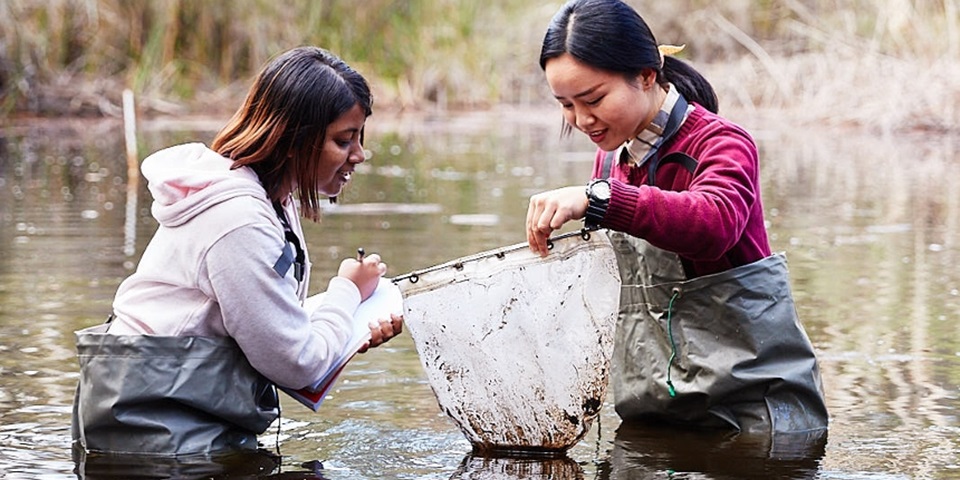News
How gender equity can drive sustainable development

Explore the critical role women have to play in securing a sustainable future this International Day of Women and Girls in Science.
“Diverse perspectives are key to understanding and addressing complex problems – and no problem is more complex than climate change,” Professor Jen Verduin, leading oceanographer and Pro Vice Chancellor of the College of Environmental and Life Sciences, said.
“So, when addressing challenges like environmental issues, it is crucial to ensure equal opportunities for everyone, regardless of gender, background, or financial status.”
Professor Verduin’s message this International Day of Women and Girls in Science is that inclusivity and gender equity can only benefit us all.
Her research on the restoration of seagrass meadows critical to the health of our oceans and the animals that live in them is a prime example of this – and one that directly benefits women across the region.
“In numerous societies, the unequal effects of environmental degradation and natural disasters on women can be linked to a range of socio-economic and cultural factors,” Professor Verduin said.
“Even in Australia, a wealthy and developed nation where conditions are often perceived as distinct and more favourable, gender inequality persists.”
On a global scale, women frequently rely on ecosystem services for their livelihoods, such as agriculture. This makes preserving these ecosystems through environmentally friendly practices essential to guarantee crucial services for women and their communities.
Professor Verduin says that one effective way to achieve fair environmental sustainability is through empowerment via education.
Educational and awareness programs focused on sustainable practices empower women to make informed decisions about their environment, health, and the wellbeing of their communities.
“Environmental sustainability can have a positive impact on women by promoting their health, creating economic opportunities, fostering education and empowerment, enhancing community resilience, providing access to clean energy, promoting gender equality, preserving ecosystem services, and facilitating adaptation to climate change,” Professor Verduin said.
This year’s theme for the International Day of Women and Girls in Science is Women in Science Leadership: A New Era for Sustainability, which focusses on tackling some of the greatest challenges on the agenda for Sustainable Development.
Professor Parisa Bahri, Pro Vice Chancellor of the College of Science, Technology, Engineering and Mathematics, is another strong advocate for women driving sustainable development.
“In the face of urgent global challenges, particularly the pressing issue of climate change, the pivotal role of a resilient and innovative Science, Technology, Engineering, and Mathematics workforce takes centre stage,” Professor Bahri said.
“This is where gender diversity emerges not merely as an essential element, but as an instrumental force for innovation.
“The inclusion of women injects a diverse array of perspectives into problem-solving, infusing creativity into the process and yielding solutions that resonate universally, extending beyond specific societal groups.”
Despite the acknowledged importance of gender diversity, a glaring underrepresentation of women persists in STEM education and the workforce.
“This gap is fuelled by various factors, including ineffective early engagement strategies, a lack of compelling STEM education in educational institutions, and workplace environments that fall short in embracing gender and age diversity.”
Professor Bahri said a comprehensive approach is required to address these challenges, delving into cultural and policy barriers.
“Initiatives designed to challenge stereotypes, offer mentorship opportunities, and cultivate inclusive environments become indispensable in empowering women to play an increasingly pivotal role in the realm of sustainability.
“Acknowledging and valuing the diverse perspectives that women contribute is not only crucial but has the power to transform the landscape of sustainability.”
“Professor Verduin, myself and every other woman in science, engineering and technology at Murdoch encourage and welcome others to join us on this journey.”
Learn about the Murdoch University Access Engineering Scholarship, which supports inclusivity in the engineering sector for a sustainable future.News
How gender equity can drive sustainable development
Posted on
Topics